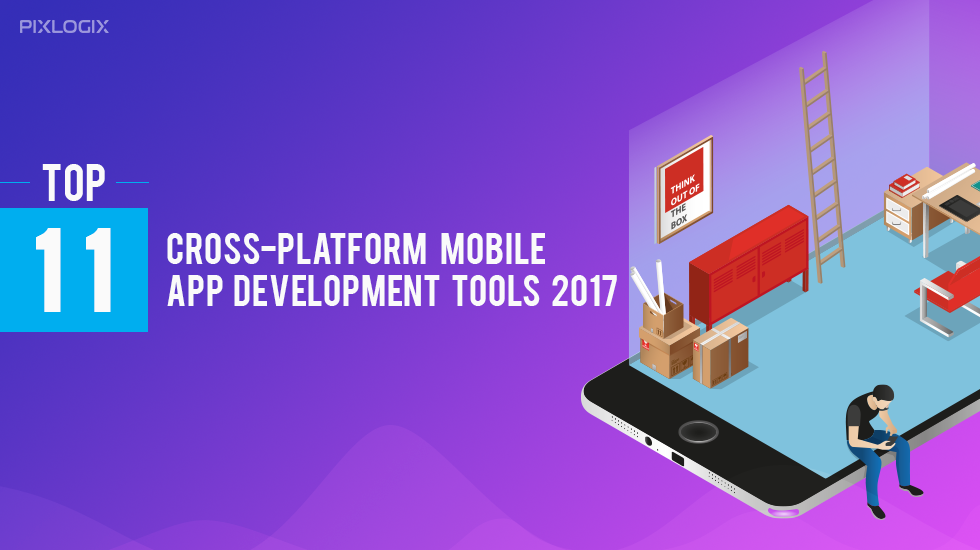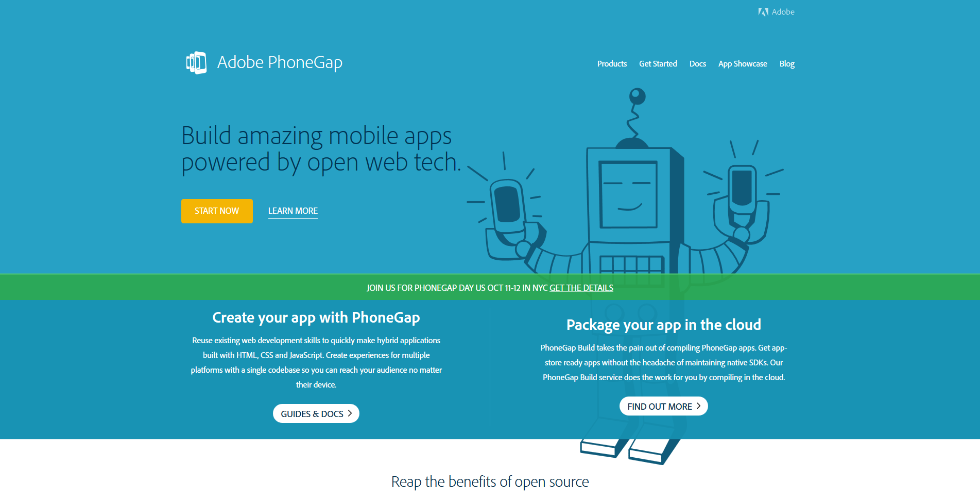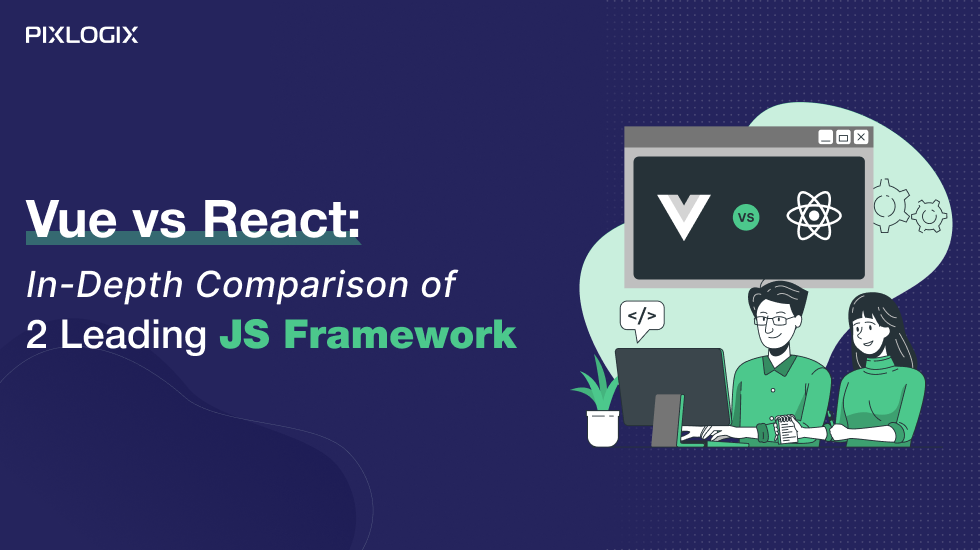Top 11 Cross-Platform Mobile App Development Tools 2017

- Last Updated On December 16, 2017
- 8 min read
As the range of mobile platforms is advancing, web developers are facing tough challenges to offer their apps in fresh forms as users may not be on every diverse platform.
For the management of efforts, resources and time, the purpose here is to build multi-platform applications with code reuse. To assist you to work on cross-platform Mobile Application Development, we will be looking at the 11 top cross-platform software frameworks for developing mobile applications that work on multiple platforms which include Android, Windows Phone, iOS, and BlackBerry OS.
1. Appcelerator
Appcelerator assists in creating native applications by deploying just a particular JavaScript codebase. It offers your web content in a native app, making sure your code is not fully wrapped across a web container contrasting to other such mobile solutions.
Advantages
- Offers rapid app development with prototype building to evaluate user interaction
- Provides schema-less data store called ArrowDB without any setup efforts
- Enable perfect integration to present constant delivery systems (SCM & MDM)
- Pre-built connectors like Salesforce, MS Azure, MS SQL, Box, MongoDB, and others
Disadvantages
- Sometimes unstable, buggy and laggy
- At times there are user complaints about low-end support
2. PhoneGap
Open source PhoneGap is a large choice for creating cross-platform mobile apps that leverage on the present as well as advanced web technologies. PhoneGap well suits mobile apps that don’t make considerable use of the phone’s native functionalities and features. It well supports your app within a useful native container which further enables JavaScript to work with device-level APIs as standard applications do.
Advantages
- Enables building hybrid apps using HTML5, CSS3, and JavaScript
- Empowers deployment to iOS, Android, Windows Phone, BlackBerry and Firefox
- Uses plugin-able architecture with access to native device APIs and can be extended
- Allows use of in-app, integrated payments for Android and also iOS
Disadvantages
- Sometimes poor performance for graphics-intensive apps built using PhoneGap
- Use some unsupported and outdated based plugins on the targeted platforms.
3. Xamarin
It assists you to create native apps for numerous platforms by utilizing a shared C# codebase. Using this platform, one can do whatever he wants in C# that is done in Objective-C, Java or Swift. It enables you to use a similar IDE, APIs as well as languages everywhere. In most cases, Git integration is created into the common Xamarin Studio.
Advantages
- Its sample apps make it swift and easier to initiate things
- 75% of developed code can be shared at lesser costs and time
- Enables functionality testing and quality assurance for several devices
- Provides and empowers applications with its own Android emulator
Disadvantages
- Not fully capable of using all open-source libraries for iOS and Android development
- Sometimes there are compatibility problems faced on certain platforms
- The free version is acutely limited for beginning a considerably big project
4. Monocross
It is an open-source cross-platform mobile framework that allows you to build good applications for iPhones, iPods, Windows Phone, Android, tablets, and Webkit enabled devices. It utilizes C#, Microsoft .NET and Mono framework for building multi-platform support applications.
Advantages
- Easy access to native device APIs at the same time coding in C#
- Offers access to numerous APIs you require to steadily deploy apps
- Requires just C# and .NET for app development and maintenance
Disadvantages
- Resources, documentation, maintenance and support present online is limited
5. Codename One
It is a cross-device platform with easy usability, swift app development and offers integration support with native platforms. While you are needed to code in Java, your app can also be verified as well as tested with Codename One.
Advantages
- Supports IDEs similar to NetBeans, Eclipse and IntelliJ IDEA
- Possess lightweight architecture enabling seamless UI on major platforms
- Its build servers create native iOS apps and Windows apps without much support
- It utilizes ParparVM which offers the assurance of compatibility with new iOS versions
Disadvantages
- Default visual themes are somewhat primitive
- Graphical UI Builder may not be very appropriate for big projects
- Maintaining a single file with every single event handler turns awkward
6. RhoMobile
It helps develop multi-platform, data-centered, enterprise-level and native mobile consumer apps. Using its free Eclipse plugin, web developers can create, debug and test apps without the need for any hardware or emulator.
Advantages
- Provides object-relational mapper for automatic synchronization and data encryption
- Facilitates web developers to incorporate offline data synchronization into applications
Disadvantages
- Its RFID plug-in built for Windows Mobile or CE is not freely accessible
7. Sencha Touch
Sencha Touch is a popular cross-platform mobile web application framework that is utilized to create well-organized, best quality and tested apps applying multiple hardware acceleration techniques. The apps are built with strongly integrated UI libraries and components with easy maintenance.
Advantages
- It provides built-in native-looking themes, supports Android, iOS, BlackBerry and Windows Phone with a robust backend data package. It enables PhoneGap/Cordova integrations.
Disadvantages
- The availability of themes is restricted and commercial licensing is tricky to comprehend.
8. Kony Mobile
Kony Mobility is a cross-platform and integrated mobile application development platform with automatic coding features, API connections as well as app preview facility features.
Advantages
- It comes with powerful and multiple pre-built apps, unified mobile infrastructure services as well as multi-channel JavaScript APIs.
Disadvantages
- Its documentation and support are not far-reaching.
9. Convertigo
It offers a mobile enterprise application platform with Convertigo Studio, Server, Cloud, and Mobilizer.
Advantages
- It comes with a connection to enterprise data and local data availability for business-driven events, notify users, even in a standby mode or inaccessibility of network.
Disadvantages
- Limited community and offline data support.
10. Nativescript
Build native cross-platform mobile applications with native APIs in JavaScript of platforms supporting extended features.
Advantages
- Extended support for Angular.js 2, TypeScript, declarative UI and native APIs.
Disadvantages
- It lacks proper multi-threading and documentation support.
11. XOJO
It offers easy ways to build cross-platform applications in iOS, Android, Linux, Windows, OS X, and Raspberry Pi.
Advantages
- Quick and provides ease of development without much prior knowledge.
Disadvantages
- JavaScript is needed; otherwise, it would be difficult to work.
Moving Forward
At Pixlogix, Hire Mobile App Developer to have highly proficient skills to make your projects successful within a precise timeframe. Get in touch today!
Ashish Tiwari
Ashish Tiwari is an SEO manager at Pixlogix Infotech Pvt. Ltd. bringing 8+ years of expertise in driving organic traffic and creating data-driven marketing strategies. With a deep understanding of business, marketing, and promotional tactics, he specializes in technical SEO, content optimization, and paid advertising. Ashish has helped businesses across e-commerce, SaaS, healthcare, and other industries achieve measurable growth. Known for his dedication and growth mindset, he has consistently delivered impactful results and achieved significant milestones in record time.
Related Post
Get in Touch Now!
Have a word with our expert consultants about your next project to get suggestive guidance & proposal.
Sales Inquiry
Chat with us about your project for a custom solution and quote.
















